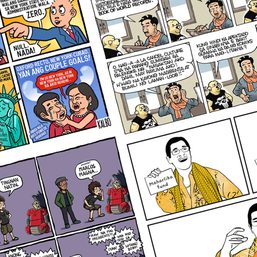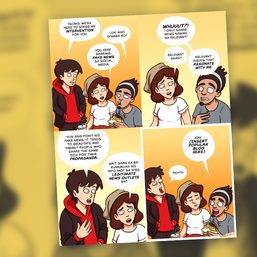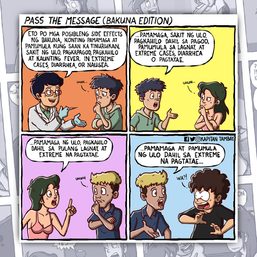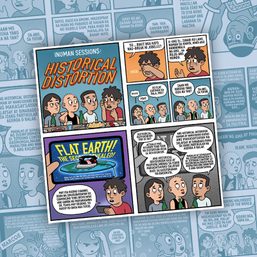SUMMARY
This is AI generated summarization, which may have errors. For context, always refer to the full article.
Try saying “really” as if you are exasperated. Now try saying it when you are amazed. Then try saying it when you are disappointed, and again when you are being sarcastic. Lastly, say “really” to drive the point that you are darn serious about what you have been saying all this time.
Note the difference in tone, which syllable you emphasized, even the volume of your voice. That is broadly rhythm – that which colors your language – and what theater actors call subtext – that which gives meaning to the sound of the word beyond its generic meaning. Rhythm is how language becomes the medium through which you can scale your own soul and others’.
To theater people, especially musical theater people, this is a fundamental knowledge and skill. But to many, to be conscious of language as such may be like a lightning bolt shattering your comfortable but sort of dull life!
I bet on this power of spoken language many years ago. My science team has been working with theater people for years now so we could powerfully connect with our audiences. But most recently, I took a musical theater song interpretation workshop for 27 hours. Much more than hitting the notes and the timing of the verses, the insight was the same but no less intense: it is how we interpret a song that makes a song meaningful and powerful. We could make you cry, laugh, or perplexed with scant verses deliberately set to tune.
I have been watching our musical director, Rony Fortich, teach us music theory – analyzing song lyrics word for word, and then the music, the notes, and the stretches that are layered on to the lyrics. These are all carefully deliberated acts by the creators of the song, because each musical theater song is a journey – a story.
I was so moved by how our musical director would reveal a reef of nuances for a word, a phrase, a lilt, an intensification or tiptoeing in the music. I felt myself shifting internal states – liquified shame, solid resolve to stand my ground, gaseous aim to rise from the ashes of sorrow, and even the Jamba juice blended ambiguous feeling of a condensate.
How could a musical mind so masterfully scale our souls? They climb, tiptoe, and run the dos, res, and mis, the flats and sharps, and the shifting keys in each of the story told in a song? This is because musicians are masters at rhythm, and language is rhythm. Dr Nina Kraus is a neuroscientist whose work has been on the relationship of music and language, and the summary of her numerous studies on this subject reveals that musicians really stand out when it comes to language skills because of their ability and training in rhythm.
One of her initial studies revealed how brain activity changes when sound becomes attached to meaning. She saw this in animals when she attached a certain sound to reward. Without an association to reward, the animal’s brain activity as seen in scans and its reaction to a sound is different than if the animal has already connected a certain sound with a reward. This establishes “sound to meaning” in our basic biology. She also reminds us of a basic fact that we speak before we could read or write, so our inner wiring really makes us sensitive to the nuances of sound because it enables us to navigate maps of meaning not just to survive but also to enrich our lives.
She also found in her other studies that those who speak tonal languages have a different sensitivity to changes in pitch. She saw their brains change activity when pitch changes compared to those who speak languages that are not tonal. But she found that musicians who are not tonal language speakers also exhibit this ability, being sensitive to the nuances of sound as it connects to meaning.
This is why Dr Kraus said that music is key to learning how to read, because reading, even if mostly and often silent to others, is really audible to your own self. She found that children tapping their feet as they read make them read better than if they did not add rhythm.
This strong music-language connection also means so much more than just having music as a subject but as a fundamental key in transforming how we learn – if not everything, then most things, and not just in schools but also in work life and everything else. It tunes us so we can calibrate our understanding, and therefore, our reactions to what happens to us. This means that we should not look at showing up for musical theaters, concerts, or even humble recitals as mere escapes from “real life” but as a fine-tuning of ourselves so we can relate better, in richer ways, to the world and to each other long after we have played or heard the music in those shows.
We should collectively rid ourselves of the notion of music as an escape because that notion does the opposite – it entraps us from living and becoming our most authentic selves. The science and art of the power of music to help us become better human beings are solid and irrefutable. It should be core in how we educate our kids, how we engage in life-long learning, how we communicate with family and friends, and be an essential part of work-life and not merely as a team building tool.
My brother cannot stand musicals. He keeps asking me why lines that are really spoken in real life have to be sung. All these years, I have never been able to articulate an answer to his question. Now, soul-scaling musical director Rony Fortich, the exhibited musical range of my theater workshop-mates, and neuroscientist Dr Kraus have all helped me finally come up with a response: It is life…so acutely aware that it is alive…that it has to SING! – Rappler.com
Maria Isabel Garcia is a science writer. She has written two books, “Science Solitaire” and “Twenty One Grams of Spirit and Seven Ounces of Desire.” You can reach her at sciencesolitaire@gmail.com.
Add a comment
How does this make you feel?





There are no comments yet. Add your comment to start the conversation.